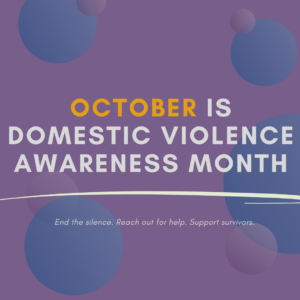Domestic Violence Awareness
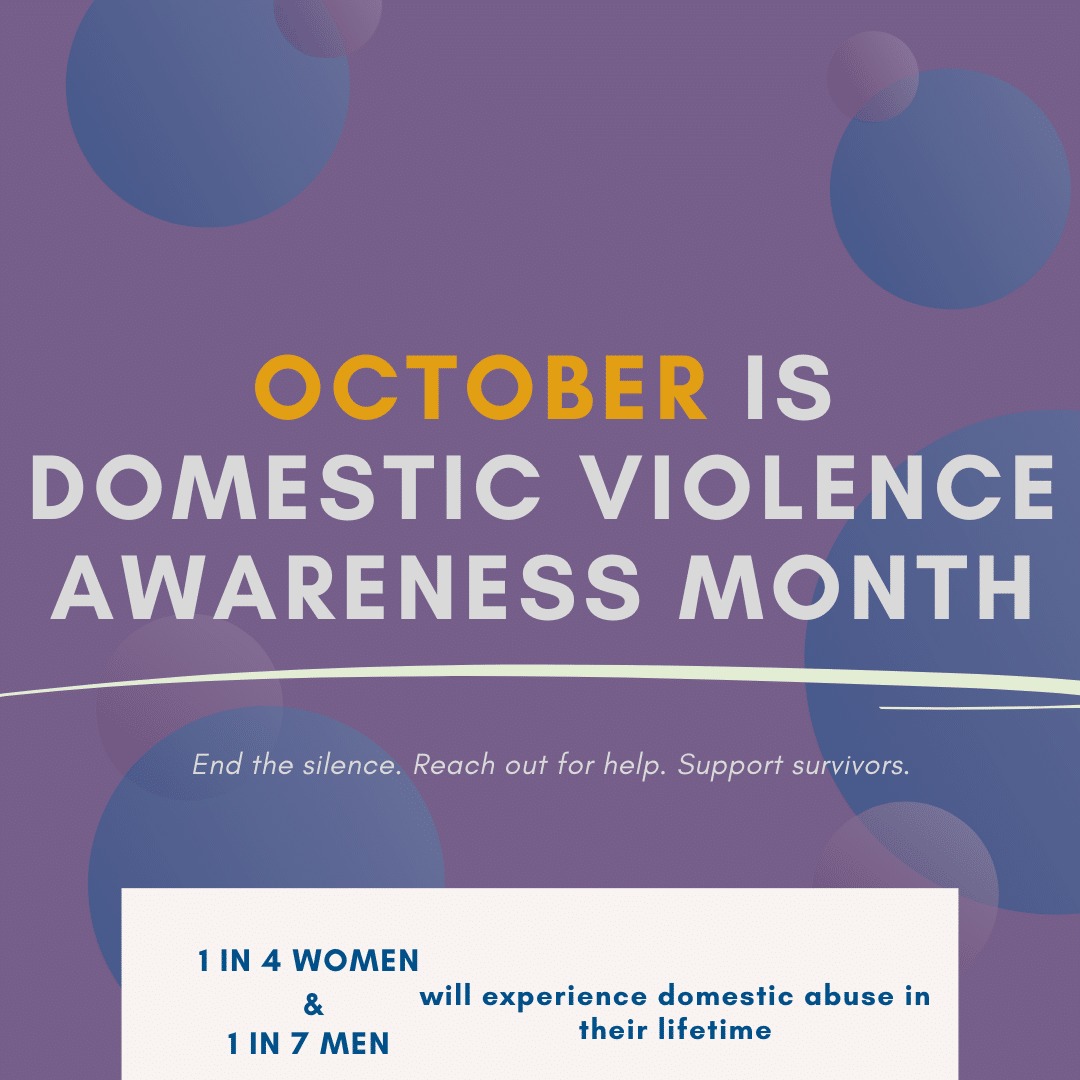 October is Domestic Violence Awareness month and as a leading cause of homelessness, it is an issue that we have at the top of our awareness year-round. It’s estimated that 80 percent of mothers experiencing homelessness have also survived domestic violence.
October is Domestic Violence Awareness month and as a leading cause of homelessness, it is an issue that we have at the top of our awareness year-round. It’s estimated that 80 percent of mothers experiencing homelessness have also survived domestic violence.
What resources does Saranam provide survivors of domestic violence?
We help connect clients with community resources for domestic violence (DV) survivors during case management, such as Enlace Comunitario and the Domestic Violence Resource Center.
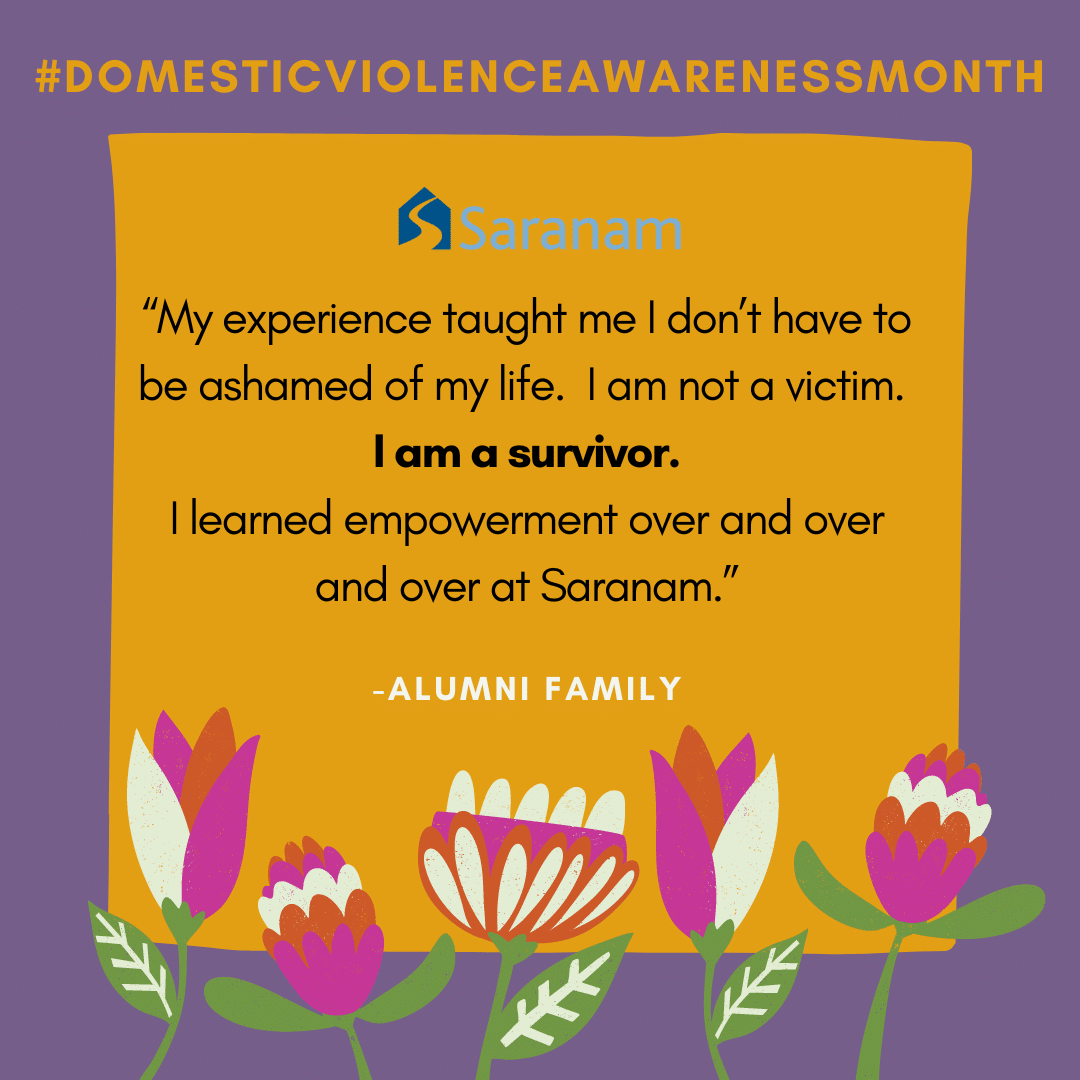 We also make sure to have speakers come to talk to our adults during our community resources class. For example, our speaker from Safe House talks about the power and control wheel, myths people have around domestic violence and statistics. We have also had different speakers present about the effects of domestic violence on children, mental health, and different resources available for people who have not only experienced DV but also sexual violence and childhood trauma.
We also make sure to have speakers come to talk to our adults during our community resources class. For example, our speaker from Safe House talks about the power and control wheel, myths people have around domestic violence and statistics. We have also had different speakers present about the effects of domestic violence on children, mental health, and different resources available for people who have not only experienced DV but also sexual violence and childhood trauma.
Our goal with all of this is to destigmatize the conversations. Even though DV is a delicate subject to talk about, we want our families to feel comfortable talking about their experiences. Knowing that there are resources out there for them also helps remind them that they are not alone.
How important is a safe place like Saranam for families who have experienced DV?
It is extremely important for families who have experienced any kind of abuse, especially DV, to have a safe place. A safe place means support, resources and safety, and building the confidence a survivor needs to end the cycle of violence. It makes a huge difference for a survivor to be able to have a place where they are believed and supported.
What does a survivor typically need?
This can vary but a lot of survivors need time. Of course, they need time to heal and adjust. Additionally, most of them have also suffered economic violence, which can complicate leaving, so they may need time to plan or maybe even get an order of protection if needed. It is estimated that it takes at least 8 attempts for a survivor to leave their abuser. Having a place they can find hope for the future can help them make a permanent break.
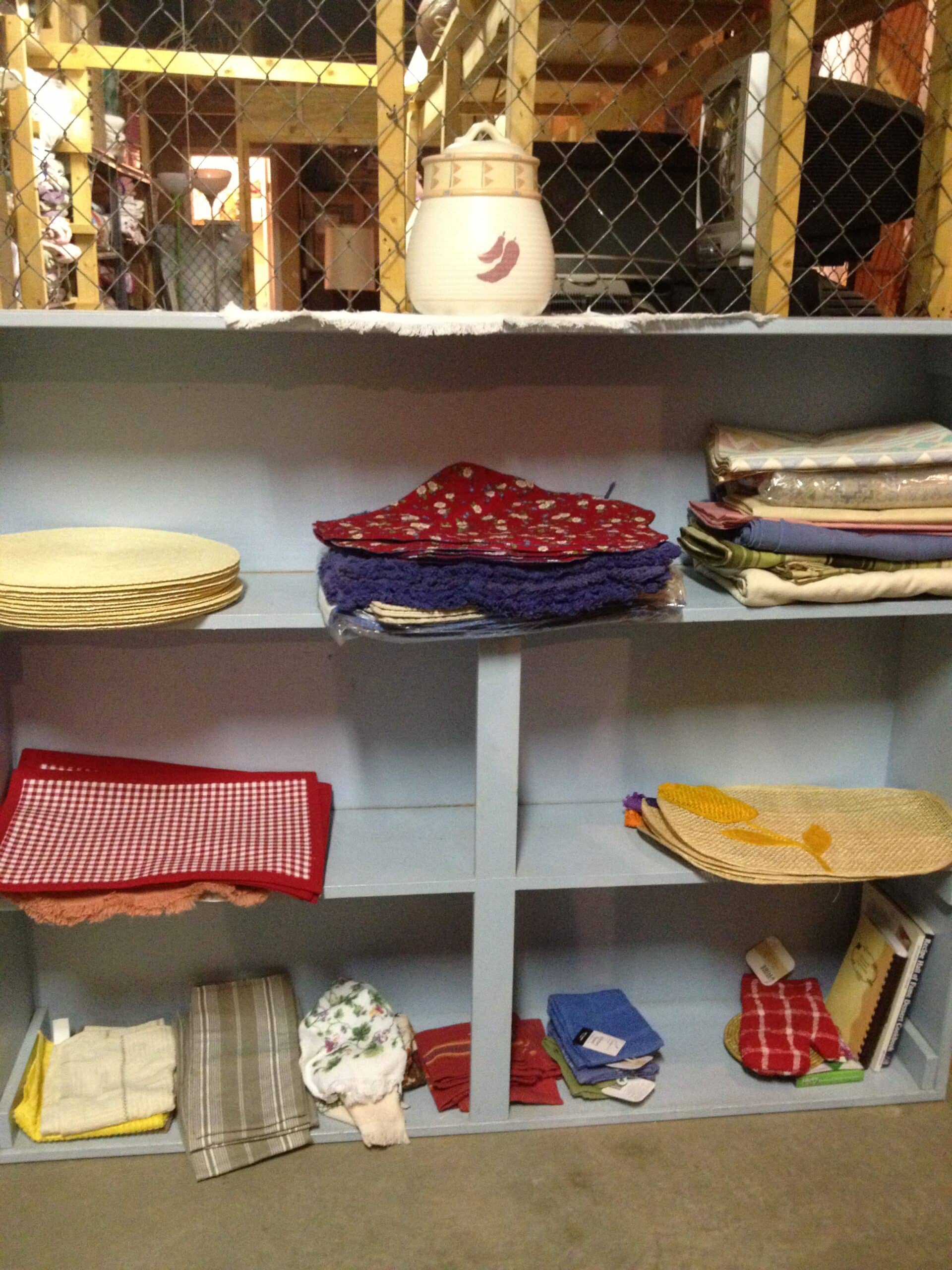 Survivors also need resources. A part of the cycle of domestic violence is isolation from family and friends or not allowing them to work, so when the survivor decides to leave, they find themselves alone with no money or a place to go. For them to know that there are places where they can go that are safe for them and their children is essential to end the cycle of violence.
Survivors also need resources. A part of the cycle of domestic violence is isolation from family and friends or not allowing them to work, so when the survivor decides to leave, they find themselves alone with no money or a place to go. For them to know that there are places where they can go that are safe for them and their children is essential to end the cycle of violence.
What is something people should know about domestic violence?
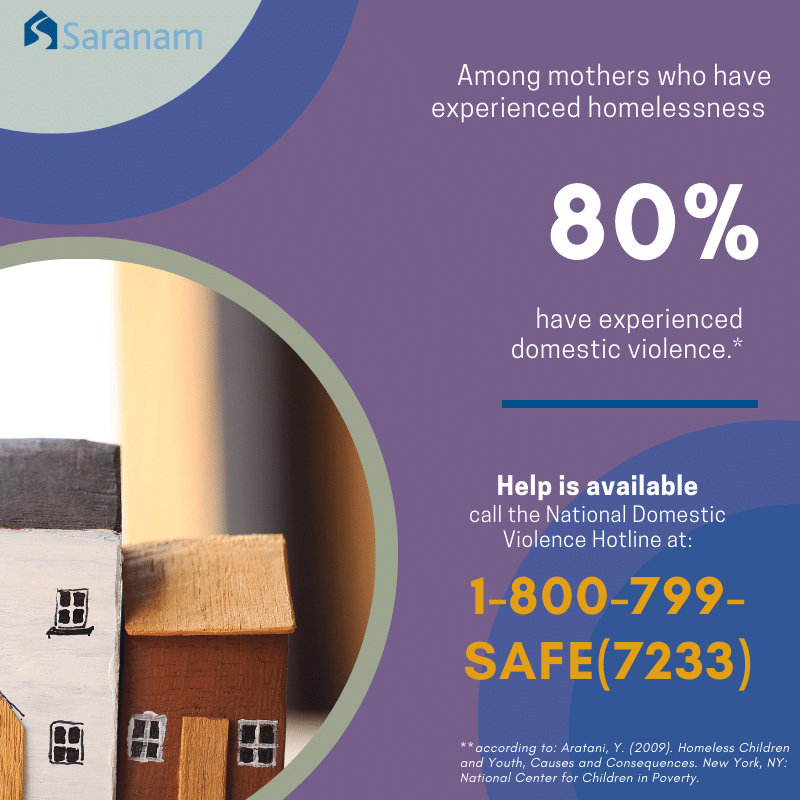 It is more common than we think and can happen to anyone: it does not discriminate against race, religion, or economic background. People often think domestic violence refers to physical abuse, but unfortunately it is more than that: it can be emotional abuse, financial abuse, intimate partner sexual abuse, and more.
It is more common than we think and can happen to anyone: it does not discriminate against race, religion, or economic background. People often think domestic violence refers to physical abuse, but unfortunately it is more than that: it can be emotional abuse, financial abuse, intimate partner sexual abuse, and more.
How can we support someone who has experienced abuse?
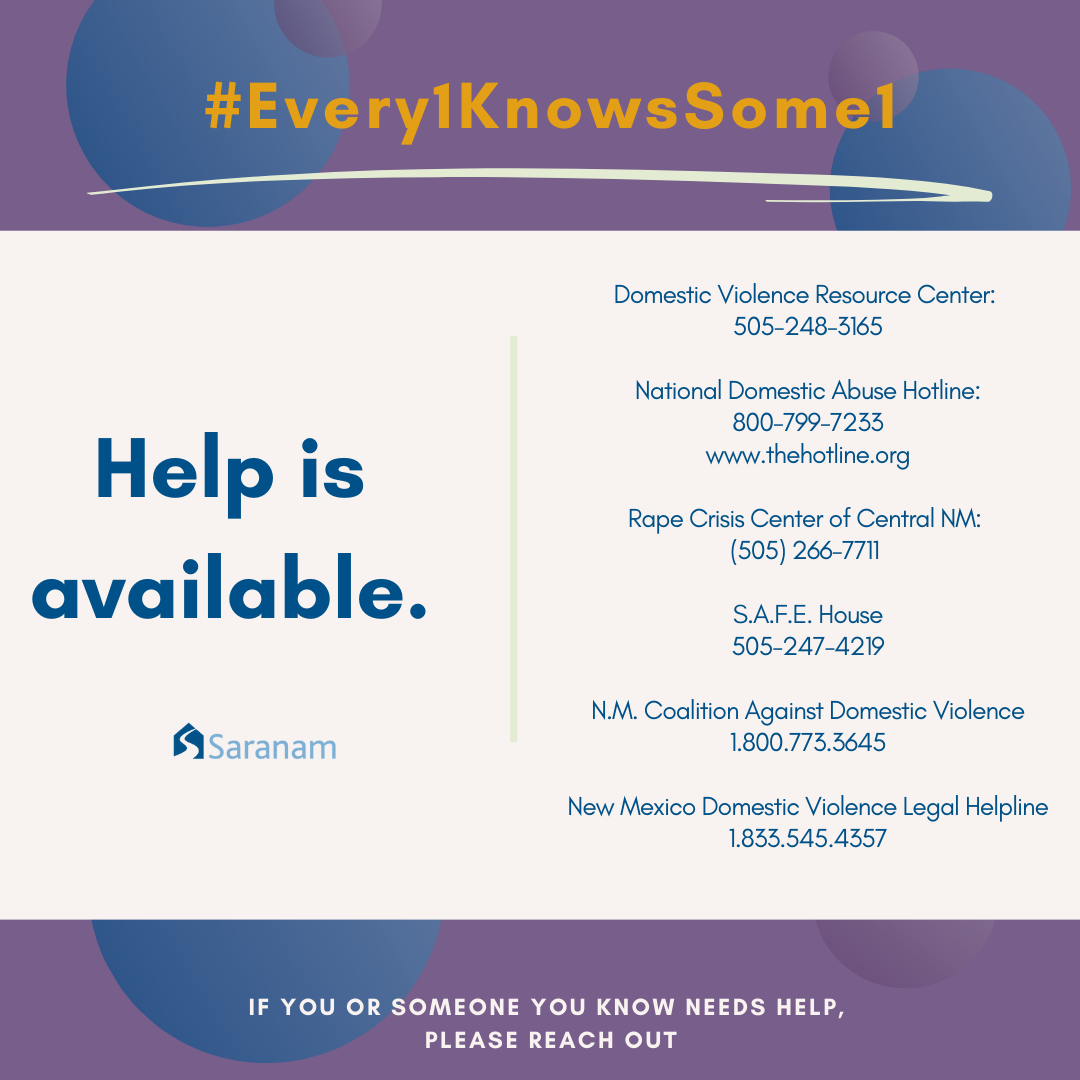 Everyone knows someone who has experienced domestic violence, so it’s important that we all know how to advocate for our loved ones. A good way to be a good advocate is to listen to people and validate their feelings so they know they’re not alone. We are all in this together.
Everyone knows someone who has experienced domestic violence, so it’s important that we all know how to advocate for our loved ones. A good way to be a good advocate is to listen to people and validate their feelings so they know they’re not alone. We are all in this together.
Here are some more ideas to raise awareness and be an advocate year-round:
- Donate your time or resources to a local shelter or organization like Saranam that helps survivors
- Highlight the work being done in the community on social media, an op-ed, or by sharing information with friends
- Know the resources you can give people when they need them. Here are a couple, to get started:
- Domestic Violence Resource Center of NM helpline: (505) 248-3165
- National hotline: 1.800.799.SAFE (7233)

